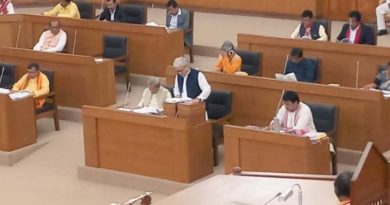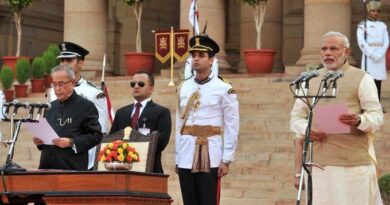Jammu & Kashmir’s integration with India is Irrevocable
IT is indeed a momentous movement as Prime Minister Narendra Modi has said rightly after over two thirds parliamentarians endorsed government’s initiative in correcting the 70 years old blunder by integrating Jammu & Kashmir with the rest of India and converting Jammu & Kashmir and Buddhist majority Ladakh into two separate Union Territories. The Lok Sabha, Indian parliament’s Lower House, on Tuesday, August 6, followed in the footsteps of the Upper House in revoking the controversial Articles 370 and ending the special status given to Jammu & Kashmir on October 17, 1949, by the then government for the intent best known to it. Indian lawmakers by overwhelming majority have also scrapped another obnoxious Article 35-A which was promulgated by the same dispensation through a Presidential order which has not benefitted any section of the natives except some vested interests, fundamentalists and their hangers-on .There is no denying that the majority of the general populace had been compelled to live in isolation when the world is becoming a globalized village due to rapid development of science and technology.Kashmiri women were deprived of their parental assets or property for wedding non-natives. Economic development as claimed by Home Minister Amit Shah, who piloted the bill in parliament, was hampered as corporate houses or investors from outside the state were prohibited from possessing land and employing skilled workforce from other states. There are disparities between the districts of Kashmir division and those of Jammu division. In the MPI and its sub-components, the 10 districts of Jammu lag behind those in Kashmir division, except Jammu and Samba districts. As The Print recalls Pakistan has nurtured a hard-line ‘Kashmir bazor Shamsheer’ (Kashmir by the sword) lobby that portrays India as an existential threat to Pakistan – a view also supported by the country’s politically dominant military”. All the four India-Pakistan wars in 1948, 1965, 1971 and 1999 were initiated by Pakistan resulting India’s victory. Pakistan continues to pursue anti-India policy at national and international forums by misinterpreting UN’s Kashmir resolution. Undoubtedly Article 370 was inhuman as it kept the people of the sensitive border state segregated from the rest of Indian citizens and frustrated any attempt at improving quality of professional and non-professional education as skilled manpower was reluctant to take up responsibility in the absence of bare minimum necessity of owing land to set up an institute. United State of America and ASEAN, a grouping of South-East Asian nations, comprising several Buddhist majority nations, are yet to react negatively to J & K’s reorganization as endorsed by the Rajya Sabha and the Lok Sabha. This reorganisation does not affect either the international boundary or the Line of Control (LoC) and the move is aimed at good governance. Beside, the move is to ensure socioeconomic benefits that go to the people of India also go to the citizens of Jammu and Kashmir, particularly the disadvantaged sections of the population there, as government asserted Parliament. The reorganisation of a state is not a new concept in India and Jammu and Kashmir is the 12th to be reorganised as per people’s wishes and ensure to readdress the long standing complaint of regional imbalance .The people living in Jammu region and Ladakh had been complaining of raw deal from the Kashmir valley based leaders for decades. Reorganization will be successful if it lead to economic development and bring in more investment to the region as pledged by the government. Members of the Kashmiri Pandit community obviously are elated saying the articles 370 and 35A of the Constitution were unwarranted in the first place and only impeded complete integration of the state within the Union of India. The community hoped that these constitutional amendments will enable them to get justice and reclaim their ancestral homeland in Kashmir from where they were displaced since the early 1990s.As some Kashmir experts say in the long run the reorganization will be extremely beneficial for the people of Jammu and Kashmir without impacting its peculiar ethnicity. Dalits, OBCs and minorities will no longer remain deprived of reservation policy in education, employment and the health- care. The government has volunteered an arduous task to ensure justice to all sections of the pluralistic J & K society which must be granted the status of a state and the proposed legislative assembly must also be constituted through free and fair elections soonest. Another most important task for the government is to win the natives’ trust and confidence by defeating nefarious propaganda especially against the security forces and others engaged in law and order assignment giving intensification of negative and emotional campaign by an interested loby intent on maligning India at any cost (courtesy :https/ musingsofaseniorjounalist @wordpress.com)




